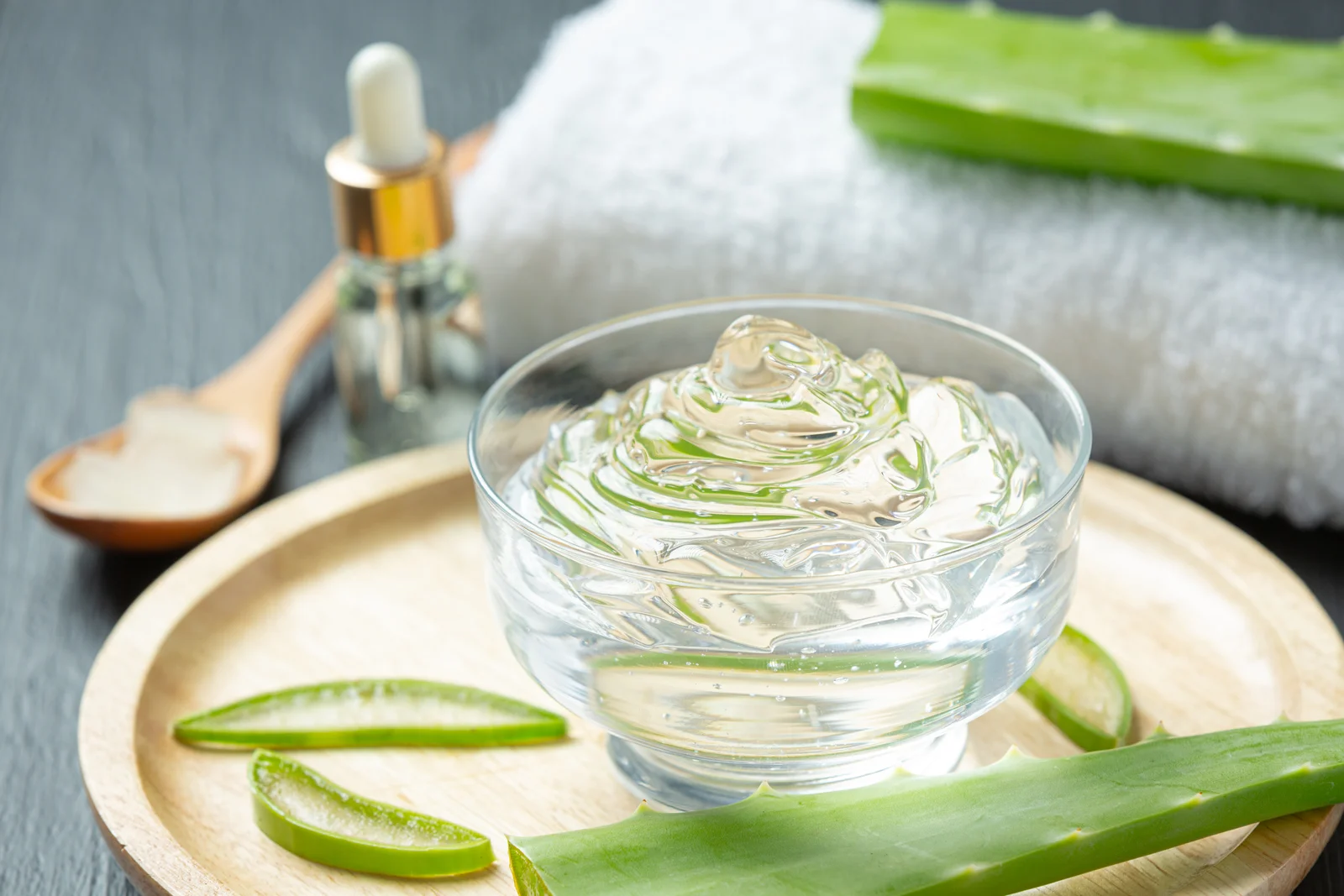The Magic of Aloe Vera: Nature’s Miracle for Skin and Hair
Aloe Vera, often referred to as the “plant of immortality,” has been celebrated for its healing properties for centuries. Known for its succulent leaves filled with a gel-like substance, Aloe Vera is packed with vitamins, minerals, and antioxidants that make it a powerful ally in skincare and hair care. From soothing sunburns to promoting hair growth, Aloe Vera offers a wide range of benefits that cater to both beauty and wellness. Let’s dive into the incredible benefits of Aloe Vera and discover why it’s a staple in natural beauty routines worldwide.
Benefits for Skin
1. Helps Soothe Sunburn
Aloe Vera is renowned for its ability to soothe sunburned skin. Its cooling and anti-inflammatory properties provide instant relief from the burning sensation and redness associated with sunburn. Aloe Vera gel creates a protective barrier on the skin, helping to retain moisture and promote healing.
Tip: Apply Aloe Vera gel directly to sunburned areas for immediate relief and faster recovery.
2. Helps to Moisturize the Skin
Aloe Vera is a natural humectant, which means it helps the skin retain moisture without leaving a greasy residue. It’s perfect for those with oily or combination skin looking for a lightweight, non-comedogenic moisturizer.
Tip: Use Aloe Vera gel as a daily moisturizer to keep your skin hydrated and soft, especially during the dry winter months.
3. Boosts Healing of Wounds
Thanks to its antibacterial and anti-inflammatory properties, Aloe Vera accelerates the healing process of minor cuts, scrapes, and burns. It promotes the regeneration of skin tissue, reducing the risk of infection and scarring.
Tip: Apply a small amount of Aloe Vera gel to wounds to aid in quicker healing and minimize scars.
4. Fights Skin-Ageing
Rich in antioxidants like beta-carotene, vitamin C, and vitamin E, Aloe Vera helps improve the skin’s natural firmness and elasticity. It reduces the appearance of fine lines and wrinkles, making it an excellent natural anti-aging remedy.
Tip: Incorporate Aloe Vera into your nighttime skincare routine for a youthful, rejuvenated complexion.
5. Reduces Infection and Acne
Aloe Vera’s antibacterial properties make it effective in treating acne and preventing further outbreaks. It helps clear clogged pores, reduces redness, and combats bacteria responsible for acne, resulting in clearer and healthier skin.
Tip: Use Aloe Vera gel as a spot treatment for pimples or as a face mask to reduce acne and calm inflamed skin.
6. Lightens Blemishes on the Face
Aloe Vera’s natural compounds help fade blemishes and dark spots, promoting an even skin tone. Regular use can lighten pigmentation and give your skin a radiant, clear appearance.
Tip: Apply Aloe Vera gel to blemishes daily to see a noticeable reduction in their appearance over time.
Benefits for Hair and Scalp
1. Aloe Vera for Hair and Scalp
Aloe Vera is not only beneficial for the skin but also works wonders for hair and scalp health. Its moisturizing and nourishing properties make it an ideal treatment for various hair concerns.
2. Helps in Hair Growth
Aloe Vera stimulates blood circulation to the scalp, promoting healthy hair growth. It contains enzymes that repair dead skin cells on the scalp, encouraging new hair growth and preventing hair loss.
Tip: Massage Aloe Vera gel into your scalp to boost blood flow and support hair growth.
3. Keeps Dandruff at Bay
Dandruff can be a persistent problem, but Aloe Vera’s antifungal properties can help keep it at bay. It soothes an itchy scalp and reduces flakiness, making it an effective natural remedy for dandruff.
Tip: Use Aloe Vera gel as a scalp treatment before shampooing to combat dandruff and maintain a healthy scalp.
4. Acts as a Conditioner to the Hair and Scalp
Aloe Vera acts as a natural conditioner, leaving your hair smooth, shiny, and manageable. It locks in moisture and strengthens hair strands, preventing breakage and split ends.
Tip: Apply Aloe Vera gel to your hair after washing for a natural conditioner that leaves your locks silky and nourished.

